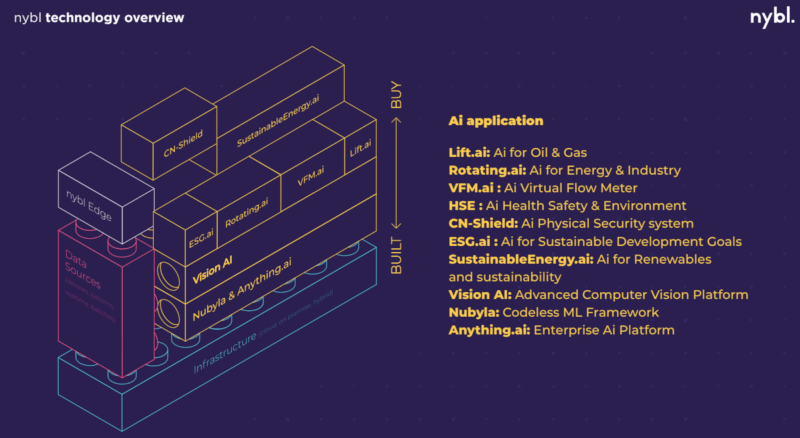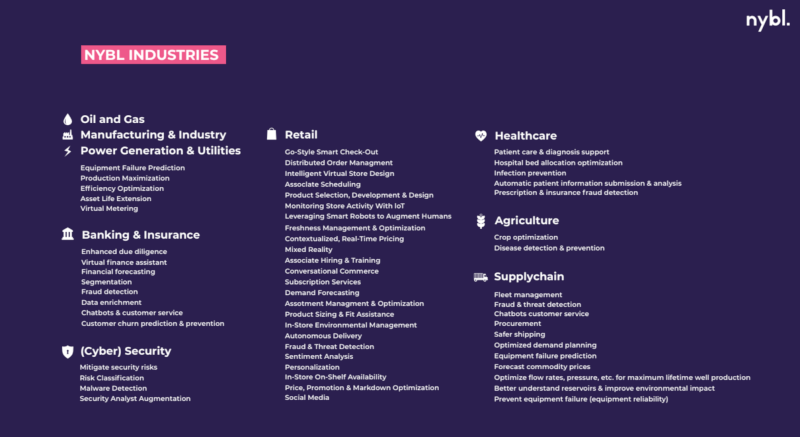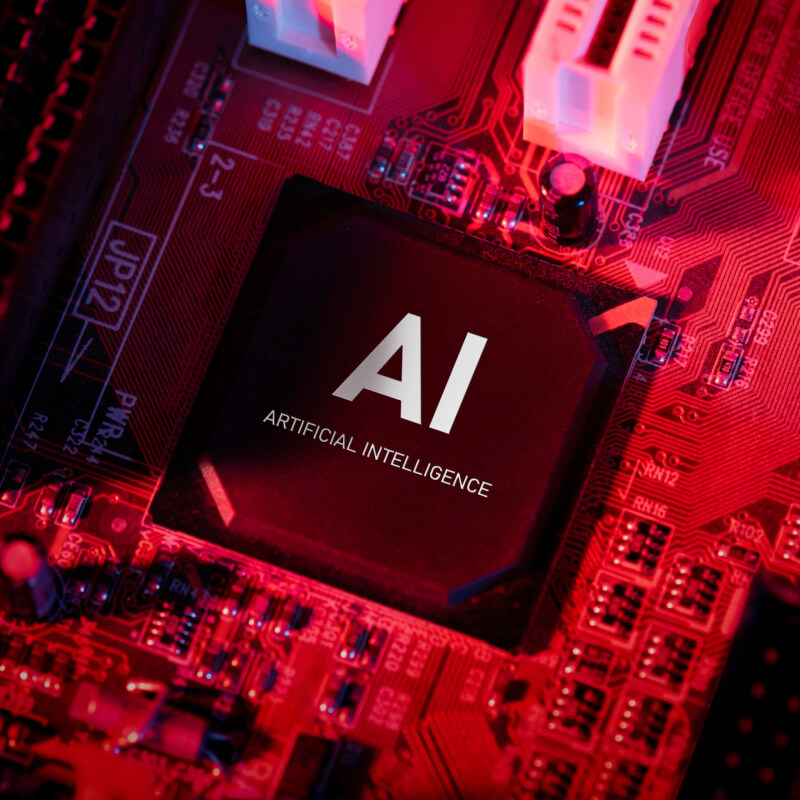Everyone uses AI. It calculates, codes, paraphrases, and even entertains our regular idiosyncrasies. Much like the Internet that made its sensational debut in 1983, AI’s preemptive resurgence in 2022 supercharged the data economy. In 2024, most of us on the internet take several detours to our preferred AI chatbot or LLM models at different times of day for answers our browsers can no longer compute. AI has transformed into a lucrative commodity and digital necessity. And much like every other essential resource, the AI space suffers from huge disparities. It is indeed an undisputed fact that everyone uses AI, but not everyone has access to the time, expertise, and code to leverage its brilliance. nybl, a Dubai-based AI startup, is hoping to change the AI status quo in the region.
Can we democratize AI?
nybl CEO and co-founder, Noor Alnahhas, is betting big on the democratization of AI in the region. Through the democratization of the world’s most illusive yet crucial commodity, nybl hopes to “create economic value in the Arab World through the development of innovation [in AI] and export it to the rest of the world. Every commodity has a cost. You have to mine it or manufacture it, and you have to invest. Innovation is people. That’s why we say, nybl is a people company; we’re not an AI company. We’re a people company; our people build AI.”

nybl’s billion-dollar business idea is as simple as Apple or Amazon’s: How can everyone use it? Noor reminded me of Apple’s basic yet effective thought process behind developing the first iMac: “They [Apple] thought, How can we get personal computers into everyone’s homes? Because a personal computer was something that only big companies could afford.” nybl shares the same founding principles for developing AI in the Middle East. According to Noor, adopting AI needs to be a “CEO decision or CEO concern” to attract enterprises, which are nybl’s primary clientele. Democratizing AI is directly tied to nybl’s vision, “Today we give startups an engine with over almost 20 million lines of code. That’s an enormous asset. Any startup can take that technology, build an application using it, and sell their specific use case to customers,” said Noor enthusiastically.
Currently, nybl’s democratic take on AI application and development has won the loyalty of publicly traded companies in the US and startups worldwide in several sectors.
From the Middle East to the rest of the world
AI is generally perceived as a Western commodity, born and bred by Silicon Valley’s finest. Noor is determined to change this historic notion. Noor and his co-founders firmly believe that “nothing worth doing is easy. Nothing worth achieving in life is easy.” Though the Middle East is undergoing a shift in investment patterns, most investors and regional venture capital still adopt a traditional outlook on growth in the region. Noor revealed that “real estate, last mile delivery, and e-commerce sell like hotcakes [in the region],” but deep tech is yet to become an investor favorite. “We want to change the story in the region. From copycats and replication to innovation and economic value,” Noor added.
nybl began its journey in the UAE and has since expanded its presence across the Arab World. With teams spread across the UAE, Saudi Arabia, Egypt, Lebanon, and Jordan, nybl is keen on fostering AI enterprises in the Middle East. “Imagine walking through a rainforest. The first person walking through gets attacked by insects and must chop down trees to forge the path ahead. We’re [nybl] blazing the path for future innovators from the region to follow,” said Noor emphatically.
When we hear the word AI, our reflex response is often OpenAI’s ChatGPT. ChatGPT is the world’s most avidly used large language model, trained on volumes of historic data. ChatGPT’s sudden hallucinations when confronted with complex prompts are a characteristic symptom of this training methodology. Keeping this fundamental side effect in mind, nybl has developed a science-based model fueled by behavioral data. Noor elaborated that “instead of training a model trained on historic data, which is inevitably affected by bias, we [nybl] train our models using a mathematical digital twin.” A digital twin is a mathematical representation of the real world, bound by the laws of physics. As a math enthusiast himself, Noor confirmed that “in the physical world, every cause can be tied back to data. Data must not be mistaken as a cause; it’s merely a symptom. A piece of equipment is not going to fail because it feels bad; a failure can always be traced back to changes in one or many parameters that govern the functioning of a system.”

nybl’s science-based model is anchored on original inputs known as hyperparameters and microfeatures that collectively form an “index of failure optimization.” This serves as the basis of nybl’s demand forecasting model that has obtained a 3,200% ROI for ADNOC and saved upwards of AED 100 million for Dubai Health Authority (DHA). Instead of chasing assured profits in the generative AI space, nybl opts for the altruistic route, recognizing the undeniable fact that “even if we do everything right, we’ll never change the world. It’s a responsibility of those who develop technology to do it for the betterment of humankind.” nybl focuses on building social foundations by making its AI offering easily accessible to the “traditional and renewable energy, utilities, power generation and water, health care, agriculture, smart cities, and manufacturing” sectors globally.

Tying price to value
Accessibility is a key driver for AI advancements in the region. Large players in the space can often access sufficient capital to leverage sophisticated AI technologies, but what about the abundant SMEs in the region that could benefit from these developments? Well, nybl is here, everyone. Unlike most enterprise-grade LLMs or AI models that follow a standard subscription model for firms that utilize their services, nybl associates price to value generated from its AI offerings. Noor explained how nybl enables small businesses to use its technology as much as big businesses. “Price is part of democratization. You can’t price small companies or small users in the same way as big companies. Small companies will have smaller compute. They may be buying it for $5,000 a year. But a big company has much bigger compute requirements. It may be $5 million a year. So our pricing is based on compute requirement.” Every quotation can be linked back to a detailed ROI calculation. “We don’t price anyone out of the market,” Noor added.
Unlike most AI companies that amass millions, even billions, nybl stands out for its human-centric goal. As most of us fret at the thought of the robots and machines taking over our lives and jobs, nybl’s journey reminds us that humanity is still at the core of unfathomable innovation. After all, it is people that built AI and people that will take it to greater heights.






